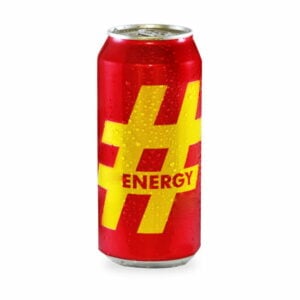
Many people don’t think about the calories that are in the beverages they drink, but a sugar-laden energy drink can pack plenty of calories. It is thought to help boost memory and ward off mental fatigue. Ginkgo biloba: Ginkgo biloba is derived from the leaves of the Chinese ginkgo tree. They are water-soluble, though, so they don’t stay in your system long. Green coffee extract: Green coffee extract delivers caffeine without the coffee flavor.ī vitamins: B vitamins, including B6, B12, niacin, and folic acid, can help boost energy. It also contains antioxidants that fight cancer. Green tea extract: Green tea extract delivers a minimal amount of caffeine. You shouldn’t consume more than three grams per day, or you may develop an upset stomach or, in more serious cases, seizures. You shouldn’t consume more than 3,000 milligrams per day, though.Ĭarnitine: Carnitine is an amino acid that can boost fat-burning and endurance. Taurine: Taurine is an amino acid that supposedly speeds up your metabolism and increases athletic performance. It contains twice the caffeine as coffee. Guarana: Guarana comes from the seeds of the South American guarana plant. It also lowers blood sugar, so ginseng shouldn’t be consumed if you’re on diabetes medication.

However, studies show that it can actually decrease your endurance during exercise. Ginseng: Ginseng is an herb that is thought to boost energy. Some of the most common energy drink ingredients include: To make sure that an energy drink is as healthy as possible, look for options with no more than 10 grams of sugar per serving.Įnergy drinks aren’t regulated by the Food and Drug Administration, so it’s important to understand the other ingredients and supplements that are commonly found in them. Sugar is another key ingredient in energy drinks, but too much sugar in your diet can lead to diabetes, obesity, and other health problems. Look for drinks that contain no more than 300 milligrams of caffeine per 16 ounces. Avoid any energy drinks that don’t disclose their caffeine content on the label. Experts recommend ingesting no more than 400 milligrams of caffeine per day. While caffeine is the main ingredient in most energy drinks, you want to be sure it’s a healthy amount because too much caffeine can leave you feeling jittery and agitated.


This is particularly helpful if you haven’t had much sleep and need to go to work or school. Let’s take a look at several key reasons why energy drinks are so popular.Įnergy boost: The most obvious benefit from an energy drink is that it makes you feel more awake and alert.


 0 kommentar(er)
0 kommentar(er)
